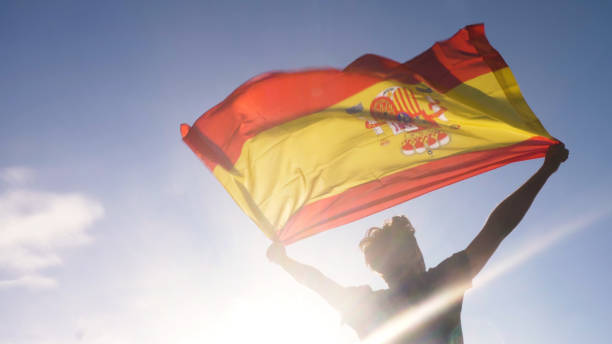FAQs
Why do I need Spanish residency?
Citizens of a Member State of the European Union, or another State party to the Agreement in the European Economic Area or Switzerland, who are going to reside in Spain for a period exceeding three months are obliged to request their registration in the Central Registry of Foreigners.
How long does the residency last?
Spanish residency currently last for 5 years. After that period you will need to re-apply. Once you have been a resident for 5 consecutive years, you can apply for permanent residency and obtain a green card.

When you apply for residency in Spain for the first time you obtain the European Union Certificate of Registration card that allows you to reside in Spain for a period of 5 years. After residing legally in Spain for a continuous period of five years you can opt for the Certificate of permanent residency for EU citizens that will allow you to live in Spain permanently. You have to repeat the process, request a prior appointment, pay the corresponding fee and present the relevant documentation.
Loss of temporary residence. It is important to note that this “expires for absences exceeding 6 months in 1 year” (Art. 14.3 RD 240/2007).
After ten years since obtaining the last residency certificate, you can apply for Spanish nationality.
How long does it take to get residency in Spain?
Once the Spanish authorities fees have been paid, upon verification of the requirements, a certificate of registration will be issued immediately to the citizen of the Union, stating the name, nationality, address, foreigner identity number and date of registration.
What documentation will I need to apply?
The documentation to present may vary depending on the form of residency you are applying for. You will always have to prove that you have enough economic means to live in Spain, because you receive income or pensions or you have a job, you also have to prove that you have health cover. You must also present your passport, a Spanish form and the payment of the application fee.
Do I need to go the authorities personally?
Yes is the simple answer. The presentation of the application will be made by the citizen of the European Union personally. Those interested will be obliged to personally apply to the Spanish authorities of the province where they intend to stay or fix their residence or, failing that, to the corresponding Police Station.
I am currently a resident, but not a pensioner. However I am due to retire soon, do I need to let the authorities know?
Yes. Interested parties must communicate any changes in circumstances related to their nationality, marital status or address to the Foreigners Office of the province where they reside or, failing that, to the corresponding Police Station.
What is the difference between residency and citizenship?
Nationality and residency are two totally different concepts: Nationality is the person’s legal bond with a Country, which attributes the citizenship status to that Country depending on the place of birth, parents nationality or citizenship attained through naturalisation, i.e. the legal process in which a person changes their nationality.

Residency is the legal authorisation to live, work, retire or study as foreigners in that country.
You can obtain nationality by residency in Spain for ten years legally, continued and immediately prior to the request. The term of 10 years is reduced in some cases assessed by Spanish laws.
Who can request it?
- The interested party, by himself, whenever he is over 18 years of age or is emancipated.
- The interested party over 14 years old assisted by his legal representative.
- The legal representative of the minor of 14 years.
The person with the capacity modified judicially by himself or the legal representative. Spanish laws require those who acquire Spanish nationality to renounce their previous nationality. This is not the case in practice. If your country allows dual citizenship, you can continue using both. The waiver only implies that Spain will only use Spanish nationality since it has no binding effects in the United Kingdom, so in practice they may continue to hold both nationalities if allowed by the British legal system.
For more information about acquiring Spanish nationality you can contact our law firm.
If the UK leaves the EU, will my residency still apply?

If the UK strikes a deal with the EU then there will be a withdrawal agreement and a period of transition from the existing Spanish residency to a new form of residency.
If there is no agreement between the UK and the EU, then the rights of British citizens living in Spain will be protected as a result of a Spanish Royal Decree that was passed on 1 March 2019.
The Spanish Royal Decree states that residents who have obtained their certificate of registration or the family card of the Union before the UK´s exit from the EU shall continue to enjoy their existing rights of residence, work, studies and Social Security. However the condition is that the UK also provides similar rights to Spanish citizens in the UK. Currently many EU nationals living in the UK are applying for settled status which is a form of residency. As of 18 September 2019 approx 1 million EU nationals have applied for settled status in the UK so we do not envisage that UK nationals living in Spain will be stripped of their existing rights.
After the UK´s exit from the EU, Spain is likely to introduce a new photographic residency card and details of the application process will be issued in due course. However in order to apply for residency UK nationals living in Spain will have to prove their legal residence in Spain and this can be proven with the existing green residency card. If you do not have your residency yet, then we would strongly recommend that you apply for it.
After the transition period
The rights of nationals of the United Kingdom and their families after the transition period will be established by any Agreement reached between the UK & EU and, failing that, the general regime of foreigners in Spain will be applied.
A Withdrawal Agreement should protect the rights of EU citizens and British nationals, as well as their respective family members, to continue living, working or studying as they currently do and under the same essential conditions as under EU law.
Without a withdrawal agreement
The condition of a British citizen in Spain will be considered as a third country national. The Spanish Government has planned a period of 21 months from the date of withdrawal from the United Kingdom without an agreement. This is reflected in the Royal Decree approved on 1 March 2019.
If you have the certificate of registration – green card- or the card of relatives of EU citizens, this will serve to prove your legal residence in Spain for a period of 21 months but you must obtain the Foreigner Identity Card (TIE). This new document will definitively prove your residence in Spain after the 21 month period.
The obtaining of the TIE will be by means of previous appointment and personally before the police stations designated to oversee this process. The TIE card will automatically replace the certificate or family card of a citizen of the Union and will be delivered within a very short period of time from your request.
If you do not have the registration certificate -green card- or the family card of EU citizen, and you can prove that you were a resident in Spain before the withdrawal date, you must before the end of the 21 month period from the date of withdrawal without agreement, obtain the Foreigner Identity Card (TIE)
What is the legal definition of Spanish residency?
An individual is a resident of Spain when they meet any of the following requirements:
- They remain in Spain for more than 183 days in a calendar year;
- Spain is the base of their main economic activity or business interests;
- Their spouse and minors habitually reside in Spain and are financially dependent.
Note. The above requirements can be dislodged by proving that a person is a tax resident in another country.
When do I become a Spanish tax resident?
If you spend more than 6 months (183 days) in a calendar year (1 January to 31 December) then you have an obligation to become a Spanish tax resident. The year after you become a Spanish tax resident between April and June, you will have to present a Spanish tax return on worldwide assets and income. Once you have obtained your residency card we will register you with the Spanish tax authorities.
If you were registered as a Spanish tax resident on 1 August 2019, as you would have spent less than 6 months of 2019 in Spain, then you will become a Spanish tax resident in 2020 (after you have spent 6 months in Spain) and you will have to present a Spanish tax return for 2020 between April & June 2021.
If I spend less than 6 months in Spain, do I still have to become a Spanish resident?
Yes. If you spend less than 6 months but more than 3 months in Spain then you have to apply to become a Spanish resident. However as you intend to spend less than 6 months in Spain, you will not become a Spanish tax resident and will not have to present a Spanish tax return on worldwide assets and income.
What is modelo 720?
This is a form that you must complete and submit before 31 March after you have become a Spanish tax resident if you have overseas assets over the value of 50,000 euros. No tax is payable when modelo 720 is submitted, however the declaration has to be submitted on an annual basis.
What is the Padron or Empadronamiento?
Any person living in Spain is required to register on the census (padron) at the local town hall where they are living. Registration is carried out at the Town Hall of the place of residence. Some police stations insist that you are registered on the Padron in order to apply for residency, so we would advise you to register on the census, Padron. To register, take copies of your passport, property deed or rental contract, utility bill and your NIE number. The town hall will ask you to complete a form and at the same time you can register to vote in local elections.
Am I entitled to a UK tax rebate when I become a Spanish tax resident?
If you become a Spanish tax resident in the same year that you have paid tax in your home country, then you maybe entitled to apply for a rebate of that tax. For UK citizens, as the tax year in the UK runs from 6 to 5 April and the tax year in Spain runs from 1 January to 31 December, if you have paid tax between 1 January and 5 April in the UK and you become a Spanish tax resident in the same year, then you maybe entitled to a tax return.
I am under the age of 65, how can I obtain medical cover?
If you are under the age of 65 and not entitled to access the Spanish healthcare system, then in order to obtain your Spanish residency, you will need private medical cover for at least 12 months. Once you have been a Spanish resident for a year, you could apply to pay into the Convenio Especial which will provide healthcare cover.
Can I obtain health care through the Convenio Especial?
If you have not managed to obtain health cover via Form S1 or by other means such as by being employed or self employed, then once you have been a resident for more than 1 year, you can obtain healthcare from the Spanish public health authorities by signing up to the Convenio Especial. This involves making a monthly payment for people under the age of 65 of €60 and €157 for those over that age.
The Convenio Especial will provide access to all the preventive, diagnostic, treatment and rehabilitation assistance activities carried out in health centers as well as urgent health transportation. Any person who temporarily moves to the territory of another autonomous community will have the right to receive in that territory the benefits of the basic common portfolio of assistance services of the National Health System.
What is Form S1?
An S1 form is a healthcare certificate that entitles you and any dependants to healthcare in another EU country, Norway, Iceland, Liechtenstein and Switzerland on the same basis as a resident of that country.
The form may be referred to as a E106, E109, E120 or E121 depending upon the reason it’s been issued.
Each country’s healthcare system is different and may not include all the things you might expect to get free of charge from the NHS.
This means that you may have to make a payment contribution towards the cost of your care (known as a ‘co-payment’).
You can find out more on the NHS website.
If you are unsure as to what you’re expected to pay for, you should discuss this with the treatment facility directly before you obtain treatment.
You can apply for an S1 for yourself and any dependants if you fall into one of the following groups:
- You are in receipt of a UK exportable benefit (e.g. a UK State Pension)
- You are a posted worker who pays compulsory NI contributions in the UK
If you are in receipt of a UK state pension or a UK exportable benefit, this certificate is issued by Overseas Healthcare Services at the NHSBSA. You can contact them on:
- 0191 218 1999 (option 5) if you are calling from the UK
- 0044 191 218 1999 (option 5) if you are calling from outside of the UK
If you are a posted worker, this certificate is issued by HM Revenue and Customs (HMRC); you can contact them on:
- 0191 203 7010 if you are calling from the UK
- 0044 191 203 7010 if you are calling from outside of the UK
If you are not entitled to an S1, you will need to contact the local authority in your country of residence for advice on how to register for healthcare and how to apply for a European Health Insurance Card (EHIC).
For more info visit: https://contactcentreservices.nhsbsa.nhs.uk/selfnhsukokb/AskUs_EHIC/en-gb/6696/application-forms-and-evidence/16477/s1-form-what-is-this-and-how-do-i-obtain-one
Any other questions?
If you have any other questions concerning gaining residency in Spain then please contact us and we will get back to you as soon as we can.
